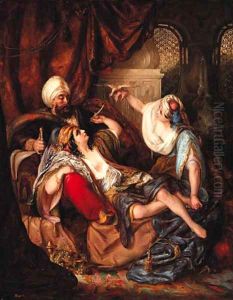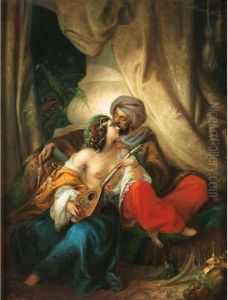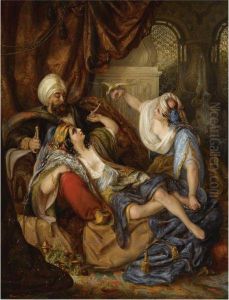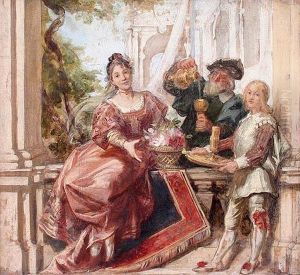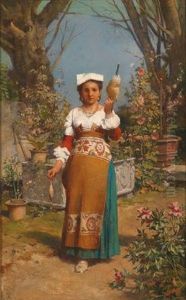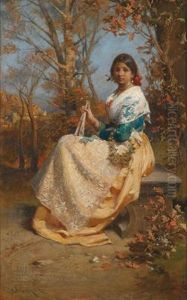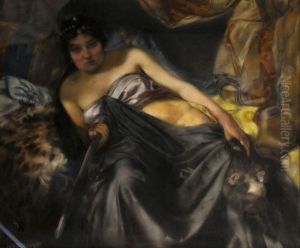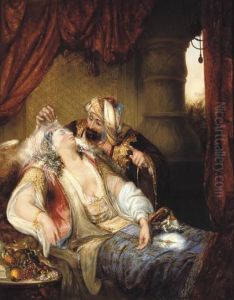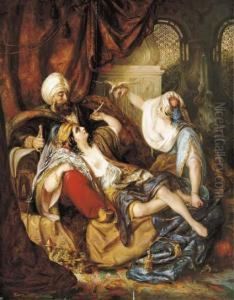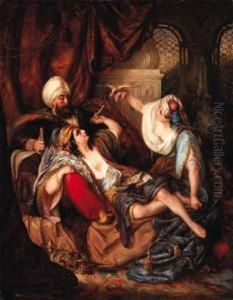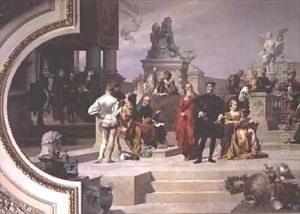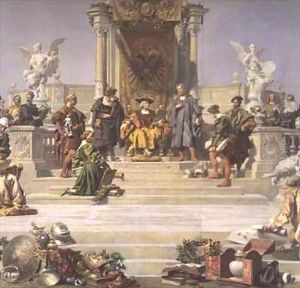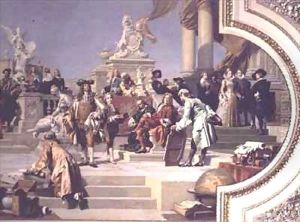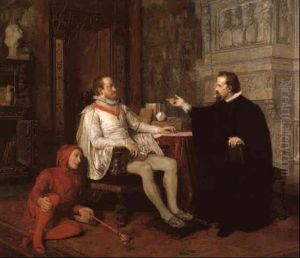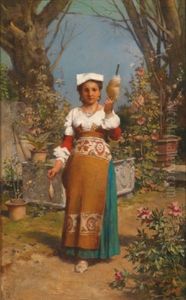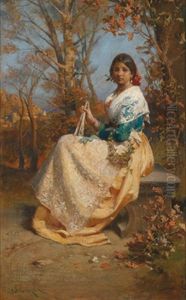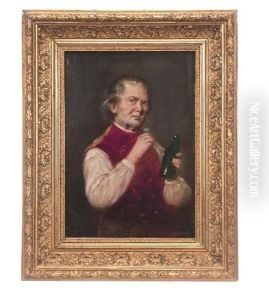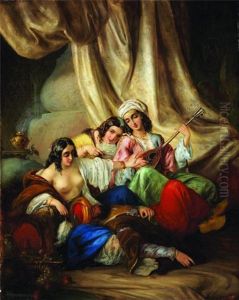Julius Victor Berger Paintings
Julius Victor Berger was an Austrian painter known for his academic style of painting, particularly focusing on historical and mythological subjects. Born on August 20, 1850, in Neutitschein, now Nový Jičín in the Czech Republic, Berger grew up in an era where the academic art tradition was highly esteemed in the Austrian-Hungarian Empire.
Berger's education in the arts was comprehensive and rooted in the rigorous training of the Academy of Fine Arts Vienna, where he studied under the guidance of notable artists such as Christian Griepenkerl and Carl Wurzinger. His talent and mastery of the academic style quickly garnered attention, leading to a successful career as a painter.
Throughout his life, Berger was deeply engaged in exploring themes from history and mythology, bringing them to life with his detailed and vivid painting style. His works are characterized by their intricate detail, vibrant color palette, and the dynamic composition of figures. Berger's ability to render fabric, textures, and emotions with realism and precision made his paintings highly sought after during his lifetime.
In addition to his paintings, Berger also contributed to the arts as an educator, taking up a teaching position at the Academy of Fine Arts Vienna. His influence extended to the next generation of artists through his teaching, where he emphasized the importance of classical techniques and the study of historical subjects.
Berger's contributions to art were recognized with numerous awards and honors, including medals at international exhibitions. His works were exhibited widely, both in Austria and abroad, further solidifying his reputation as a leading figure in the academic art movement of his time.
Julius Victor Berger passed away on October 17, 1902, in Vienna. His legacy lives on through his impactful paintings and his influence on the students he taught. Today, his works can be found in museums and private collections around the world, appreciated for their beauty and historical significance.
